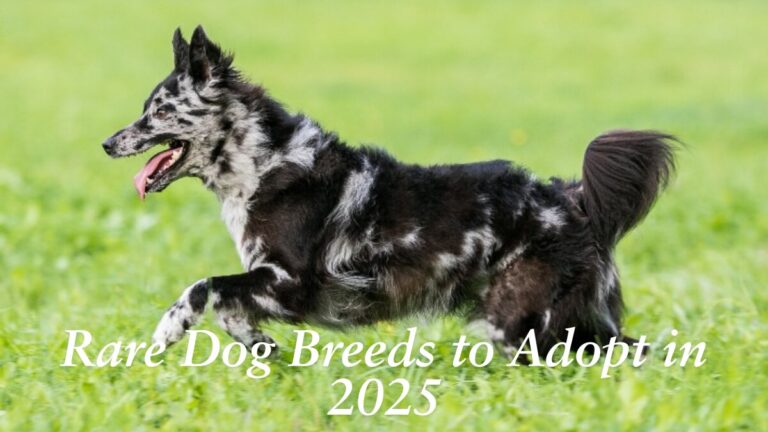Introduction:
The Goldendoodle, a popular hybrid breed, is a cross between the Golden Retriever and the Poodle. This dog is known for its friendly nature, intelligence, and hypoallergenic coat. The Goldendoodle has quickly become a favorite among dog owners due to its versatility and endearing personality. Whether you’re considering adopting one or simply want to learn more, this guide will provide everything you need to know about Goldendoodles.
History of the Goldendoodle
The Goldendoodle’s history begins in the late 20th century, as breeders sought to create a dog that combines the best traits of two beloved breeds—the Golden Retriever and the Poodle. The Golden Retriever was chosen for its friendly, outgoing nature, while the Poodle was chosen for its intelligence and hypoallergenic coat. The goal was to create a family-friendly dog that was low-shedding and suitable for people with allergies.
The Origins of the Hybrid
The first intentional breeding of a Goldendoodle occurred in the 1990s, and the breed quickly gained popularity. The rise of hybrid dogs or “designer dogs” during this time led to an increase in interest in the Goldendoodle, as it combined the best of both worlds. Goldendoodles have since become a popular choice for families, especially those looking for a dog that is both affectionate and easy to train.
Goldendoodle Recognition and Popularity
While the Goldendoodle is not yet officially recognized by major kennel clubs such as the American Kennel Club (AKC), it is a beloved hybrid breed worldwide. Its friendly disposition, hypoallergenic coat, and intelligence have made it a sought-after choice for families, therapy work, and service dog training. Over the years, the breed has grown in popularity, appearing in many homes across North America, Europe, and beyond.
Physical Characteristics of a Goldendoodle
Goldendoodles are known for their striking appearance, consolidating the Brilliant Retriever’s brilliant, wavy coat with the Poodle’s wavy or wavy fur. The variety’s actual characteristics can fluctuate contingent upon whether the canine takes after its Poodle or Brilliant Retriever parent. These canines normally have an athletic form, with a strong and proportional body.
Size and Weight of Goldendoodles
Goldendoodles come in various sizes depending on whether they are bred from a standard, miniature, or toy Poodle. The standard Goldendoodle, which is the most common size, typically weighs between 50 to 90 pounds. Miniature Goldendoodles tend to weigh between 25 to 35 pounds, and toy Goldendoodles generally weigh under 20 pounds. The size of the dog will also depend on the size of the Poodle parent, as Poodles come in different sizes as well.
Coat Color and Texture
One of the standout features of the Goldendoodle is its coat, which can range from curly to wavy or straight. Goldendoodles typically have a soft, dense coat that is often low-shedding, making them a popular choice for allergy sufferers. Their coats come in various colors, including cream, gold, apricot, and red. The hypoallergenic quality of the Goldendoodle’s coat is a significant reason why many families choose this breed.
Health and Lifespan
Goldendoodles are generally healthy dogs, but like all breeds, they can be prone to certain health issues. Some of the common health concerns for Goldendoodles include hip dysplasia, ear infections, and eye conditions like cataracts. The lifespan of a Goldendoodle typically ranges from 10 to 15 years, depending on its size, genetics, and overall health. Regular veterinary care, proper diet, and exercise can help maintain the dog’s health and longevity.
Temperament of Goldendoodles
The Goldendoodle’s temperament is one of the breed’s most attractive qualities. Known for being friendly, intelligent, and social, Goldendoodles make excellent family pets and companions. Their gentle disposition and eagerness to please make them easy to train, while their loyalty and affectionate nature make them wonderful companions.
Social and Friendly Nature
Goldendoodles are incredibly social dogs and tend to get along well with both people and other animals. Whether they are meeting new people or playing with other dogs, Goldendoodles thrive in social environments. Their friendly nature also makes them excellent candidates for therapy work, as they are calm and empathetic towards those in need.
Intelligence and Trainability
Goldendoodles are highly intelligent dogs, thanks to their Poodle heritage. Poodles are known for their ability to quickly learn new tasks, and this trait is passed on to the Goldendoodle. Whether it’s learning new commands, tricks, or house rules, Goldendoodles are eager to please and respond well to positive reinforcement training methods. Early socialization and training are important for raising a well-behaved Goldendoodle.
Affectionate and Loyal
Goldendoodles are known for their affectionate and loyal nature. They form strong bonds with their families and often seek out attention and companionship. Whether cuddling on the couch or following their owners around the house, Goldendoodles are typically attached to their family members. Their loving demeanor makes them great pets for families with children or individuals who are looking for a companion to share their lives with.
Care Requirements for a Goldendoodle
Like all dogs, Goldendoodles require regular care to stay healthy and happy. Their needs include proper grooming, exercise, training, and a balanced diet. Understanding the care requirements of a Goldendoodle will help ensure that it lives a long and fulfilling life.
Grooming and Coat Care
One of the key aspects of Goldendoodle care is grooming. Depending on the type of coat the dog has, grooming needs may vary. Dogs with curly or wavy coats will require more frequent grooming to prevent matting and tangles. Regular brushing, at least two to three times a week, will help keep the coat looking its best and prevent shedding. Professional grooming may also be necessary every few months, especially for dogs with a thicker or curlier coat.
Exercise and Mental Stimulation
Goldendoodles are an active breed that enjoys regular exercise. Daily walks, playtime, and opportunities to run and explore are essential to keeping a Goldendoodle physically fit and mentally stimulated. They are also highly intelligent dogs, so mental stimulation through training sessions, puzzle toys, or agility courses is important for their overall well-being.
Diet and Nutrition
Goldendoodles require a well-balanced diet to maintain their energy levels and overall health. High-quality dog food that provides the necessary nutrients, including protein, fats, carbohydrates, vitamins, and minerals, should be selected. Portion control is also important to prevent obesity, a common issue in larger dogs. Always consult with a veterinarian to determine the best diet for your Goldendoodle based on its age, size, and activity level.
Common Health Problems in Goldendoodles
Goldendoodles are by and large solid canines, yet they can be inclined to specific medical problems. Understanding these wellbeing concerns will assist you with avoiding potential risk to keep your Goldendoodle blissful and solid all through its life.
Hip Dysplasia
One of the most common health problems in Goldendoodles is hip dysplasia, a genetic condition where the hip joint doesn’t develop properly, leading to arthritis and pain. While not all Goldendoodles will develop hip dysplasia, it’s important to ensure that both parent dogs have been screened for the condition before breeding. Regular vet check-ups and maintaining a healthy weight can help manage the condition if it occurs.
Ear Infections
Goldendoodles, like many breeds with floppy ears, can be prone to ear infections. Regular cleaning and checking of the ears are essential to prevent moisture and bacteria buildup, which can lead to infections. If your Goldendoodle is frequently shaking its head or scratching at its ears, it’s important to seek veterinary care promptly.
Eye Conditions
Goldendoodles can be susceptible to eye problems such as cataracts, progressive retinal atrophy (PRA), and other inherited eye conditions. Regular eye exams are important to detect these issues early and prevent them from affecting your dog’s vision. Most breeders screen for eye conditions to ensure healthy puppies, but it’s still important to stay vigilant as your Goldendoodle ages.
Goldendoodles as Therapy and Service Dogs
Goldendoodles are not only great family pets but also excel in therapeutic and service dog roles. Their gentle and empathetic nature, combined with their intelligence, makes them well-suited for assisting people with disabilities and providing emotional support.
Therapy Dogs
Many Goldendoodles work as therapy dogs, visiting hospitals, nursing homes, and schools to provide comfort and emotional support. Their calm demeanor and eagerness to please make them excellent candidates for this type of work. Goldendoodles are often chosen for their ability to connect with people and provide a sense of calm and comfort to those in need.
Service Dogs
Goldendoodles are also trained as service dogs for individuals with disabilities. Due to their intelligence and ability to learn a variety of tasks, they are often used for mobility assistance, hearing aid, and seizure detection. Their hypoallergenic coats also make them an excellent choice for individuals with allergies who require the assistance of a service dog.
Why Choose a Goldendoodle?
Goldendoodles make magnificent pets for different reasons. Their friendly nature, insight, and hypoallergenic coats pursue them, a famous decision for families, singles, and those with sensitivities. They are perfect with youngsters, simple to prepare, and succeed in treatment and administration canine jobs. In the event that you’re searching for a cherishing and shrewd sidekick, the Goldendoodle might be the ideal variety for you.
FAQ:
Are Goldendoodles good for families with children?
Yes, Goldendoodles are excellent family pets. They are known for their friendly and gentle nature, making them great companions for children. Their patient and affectionate demeanor allows them to get along well with kids of all ages. Additionally, their playful energy ensures they enjoy engaging in fun activities with the family, such as fetch or running in the yard. However, as with any breed, supervision is important to ensure safe interactions between children and dogs.
Do Goldendoodles shed a lot?
Goldendoodles are viewed as low-shedding canines, particularly when contrasted with different varieties. This is because of their Poodle family, as Poodles have a wavy coat that will in general snare hair, diminishing shedding. Be that as it may, Goldendoodles can in any case shed somewhat, especially those with wavy or straight covers. Normal preparing, including brushing and periodic expert prepping, can assist with limiting shedding and keep the coat sound.
How much exercise does a Goldendoodle need?
Goldendoodles are an active and energetic breed that requires regular exercise to stay healthy and happy. A typical Goldendoodle will need at least 30 to 60 minutes of physical activity each day, including walks, playtime, and opportunities to run. Additionally, since they are highly intelligent, Goldendoodles benefit from mental stimulation, such as training sessions, puzzle toys, and interactive games. Providing them with both physical and mental exercise is essential to prevent boredom and ensure their well-being.
Final thought
The Goldendoodle is a well disposed, keen, and cherishing breed that has caught the hearts of canine sweethearts around the world. Whether you’re searching for a family pet, treatment canine, or administration canine, the Goldendoodle’s remarkable disposition and flexibility make it an optimal decision. With the legitimate consideration, preparation, and consideration, a Goldendoodle can be a reliable and loved ally for a long time to come.




